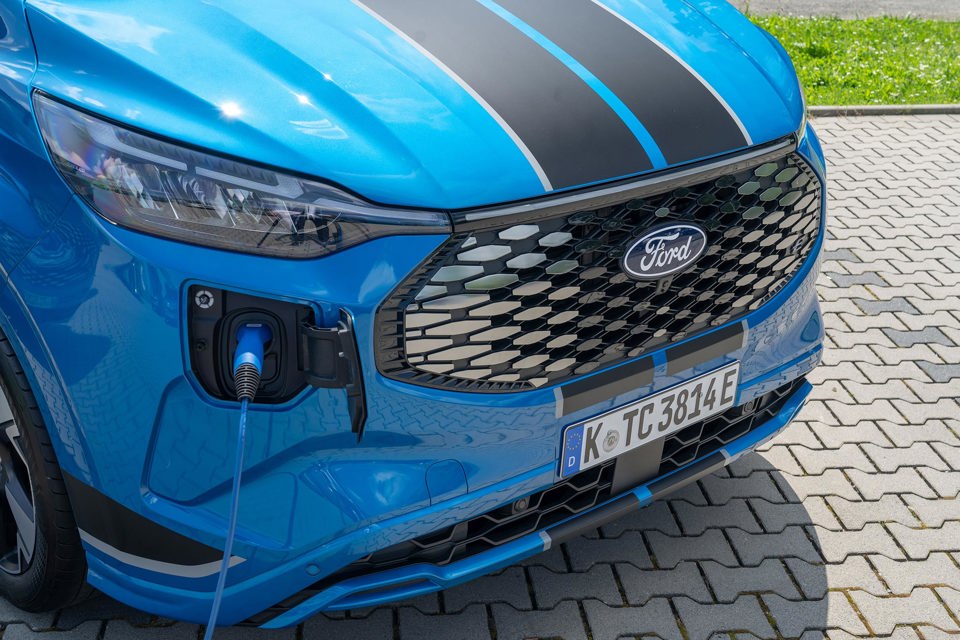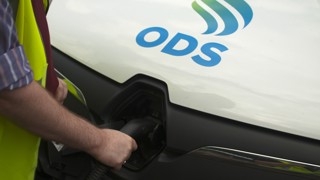Small and medium sized business can benefit from the same cost advantages of electric vehicles (EVs) as larger fleets, but many still have concerns about how long they take to charge.
A new report commissioned by Ford Pro: The Economics of Commercial Van Usage Across Europe 2024, published by the Centre for Economics and Business Research (CEBR), found that a typical small business could recoup the inflated upfront costs of buying an EV within three years.
More than a third of business owners surveyed as part of the research stated that charging times was the biggest barrier for adoption, however.
For small vans, the report estimates that the total costs of adopting an electric vehicle and operating it for three years average £55,730 for a typical sole trader. These costs encompass the purchase of the vehicle and a charge point and three years’ worth of depreciation, recharging costs, and maintenance.
The analysis concludes that would be almost £12,000 cheaper than an equivalent petrol or diesel vehicle.
For a large fleet, with 1000 vehicles, the operating costs for EVs would be £55m, a saving of £11m.
“We have been helping small businesses to build the economies of Europe for almost 60 years – but the greatest opportunity to improve their uptime and productivity lies ahead,” said Hans Schep, general manager, Ford Pro, Europe.
“Florists, plumbers, and bakers will play a leading role in taking EV adoption to the next level, and we will bring large fleet levels of charging, software and servicing support to these small businesses so they can electrify in the way that best makes sense for them.”
The CEBR’s analysis recognises that there are large upfront costs to purchasing a fleet of EVs, but concludes that these can be offset over time by lower refuelling costs, among other factors.
It states that the existence of such upfront costs can be sufficient for drivers to delay the switch between petrol or diesel vehicles and their electric counterparts. This sentiment was captured via a bespoke survey.
When asking respondents that do not currently drive an electric van about their reasons for doing so, the upfront purchase cost was the second-most commonly cited option, being selected by 37.7% of the sample.
Also of note was the relationship between business size and electric van adoption. There was a generally positive relationship between business size and the likelihood of having already adopted an electric van. For instance, just 2.2% of sole traders in our sample stated that they currently drive an electric van, while 13.0% of those at large enterprises reported usage.
Given the upfront costs associated with purchasing electric vehicles, the CEBR says this likely partially reflects the greater economies of scale achievable by larger enterprises and could also reflect the fact that large enterprises are likely to have more vehicles in their fleet, providing more scope to test electric vehicle adoption relative to smaller businesses.
There were other commonly cited barriers among those who have not yet switched to a fully electric van. The most common response was charging time, which was selected by 38.1% of those yet to switch.
Concerns over vehicle range or battery life was the third most commonly cited barrier across the whole sample, selected by 31.7% of those to have not yet switched to an electric van, while availability of public charging infrastructure was selected by 29% of respondents.
Despite the barriers to current adoption, those yet to switch to an electric van were largely positive about their plans to do so within the next five years. Amongst those yet to switch, a majority (58.6%) said that they were at least somewhat likely to switch to an electric van over the next five years. Within this figure, 15.0% said that they would definitely switch.
“The transition to electric could bring considerable societal benefits on both local and global scales, primarily through the mitigation of harmful pollutants and greenhouse gas emissions,” said Nina Skero, chief executive of Cebr.
“Our analysis also demonstrates that vans already support a significant proportion of economic activity across European markets. Indeed, vanreliant industries contributed €860 billion to European Union economies last year. The portion of this figure attributed to electric vans is expected to grow as adoption continues and more businesses realise and accrue EV operational savings.”





















Login to comment
Comments
No comments have been made yet.